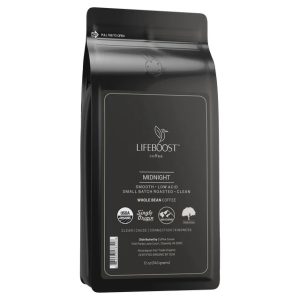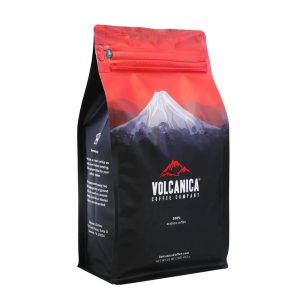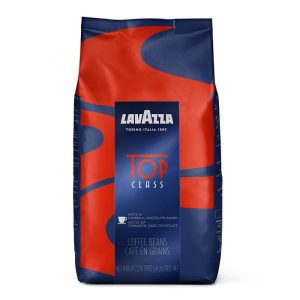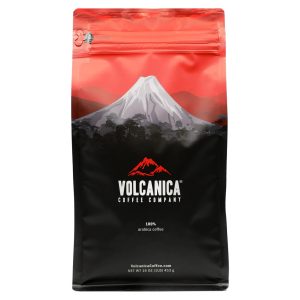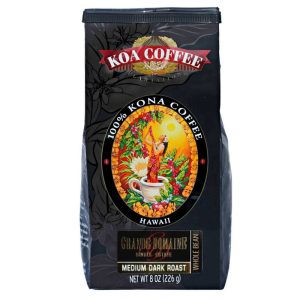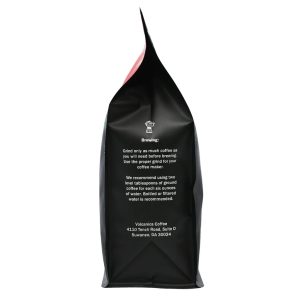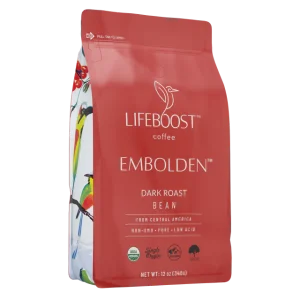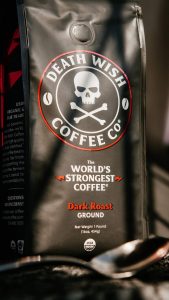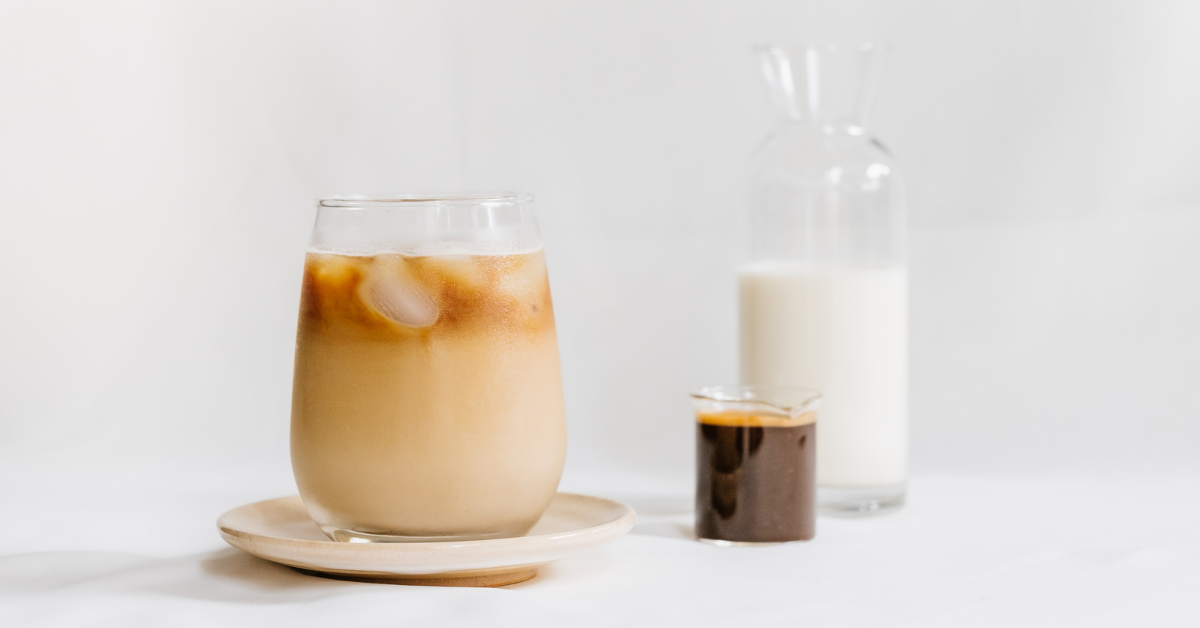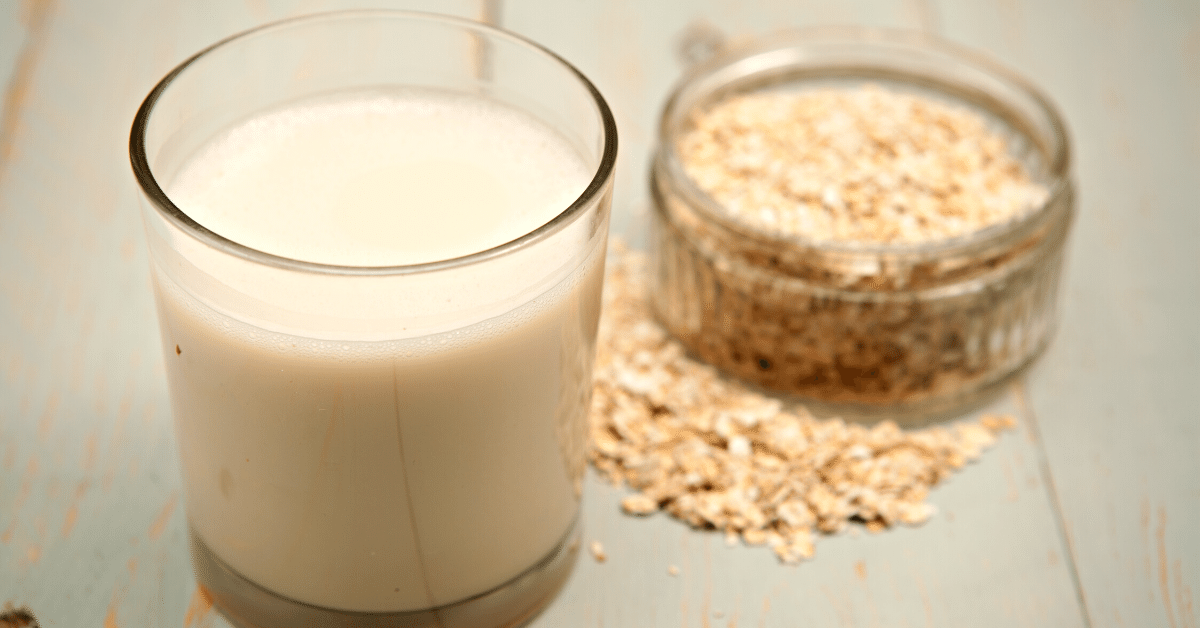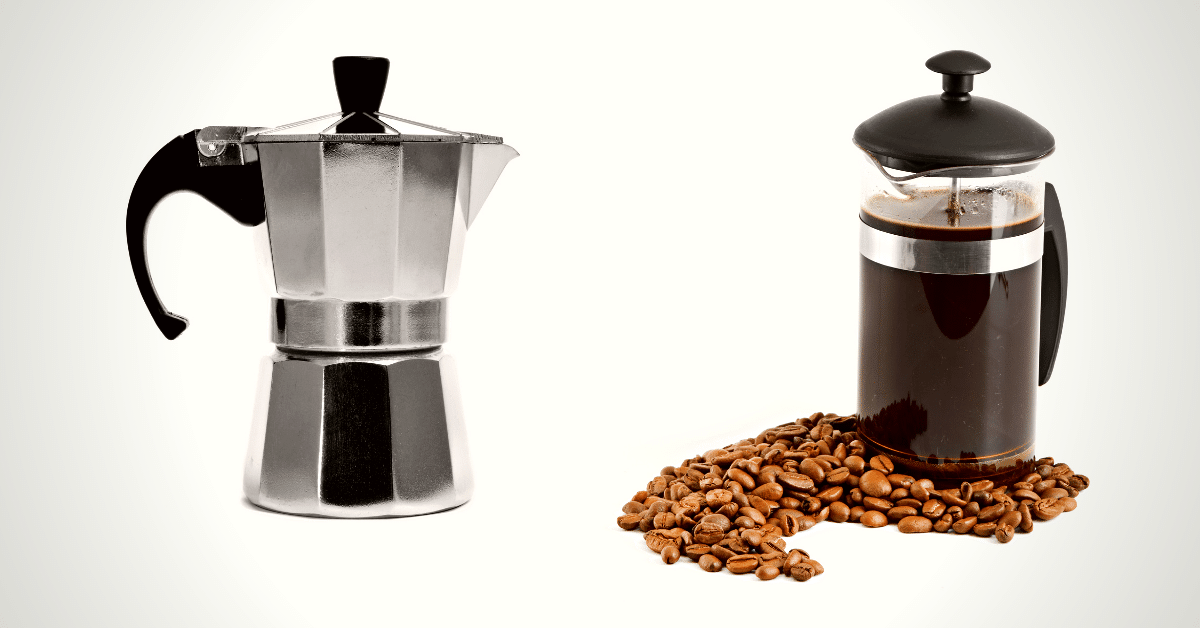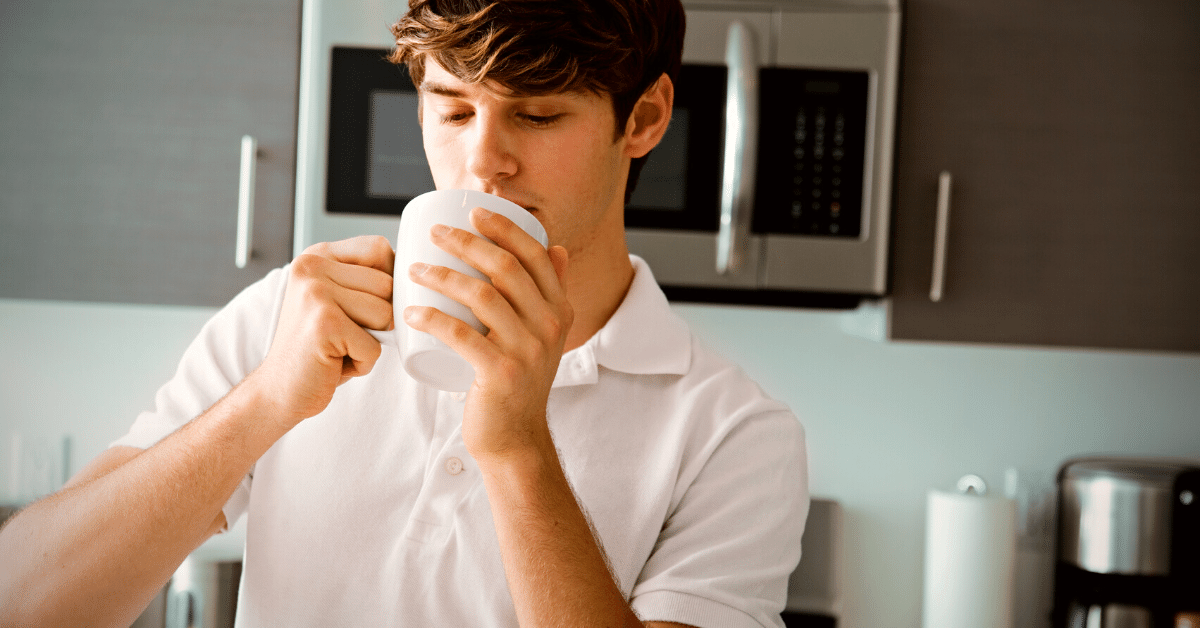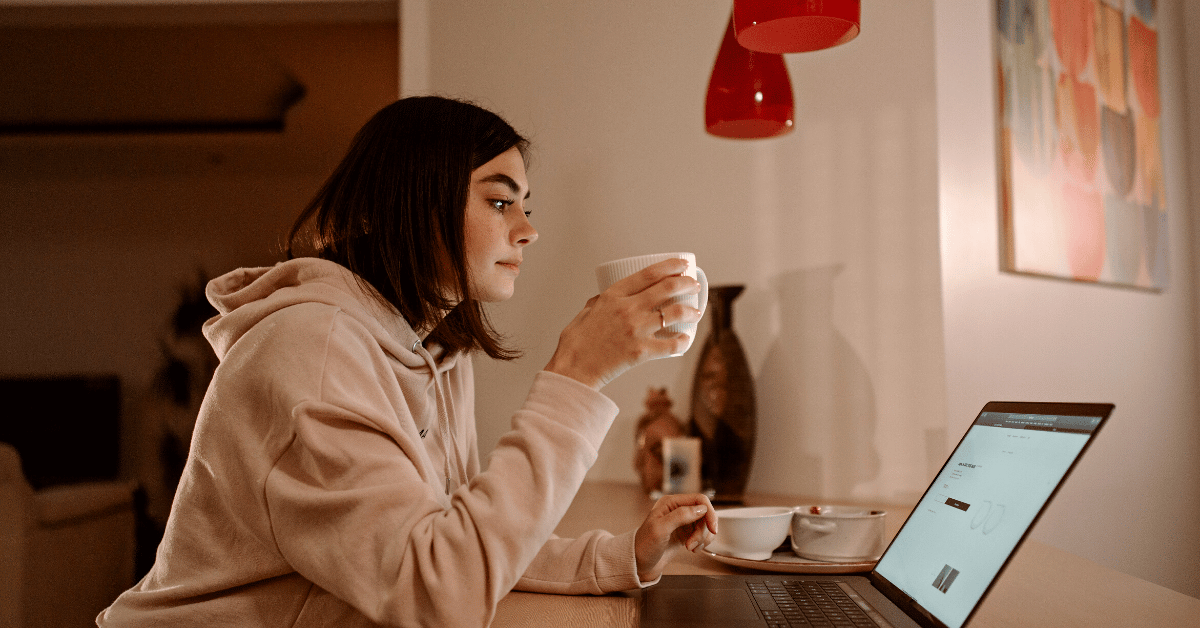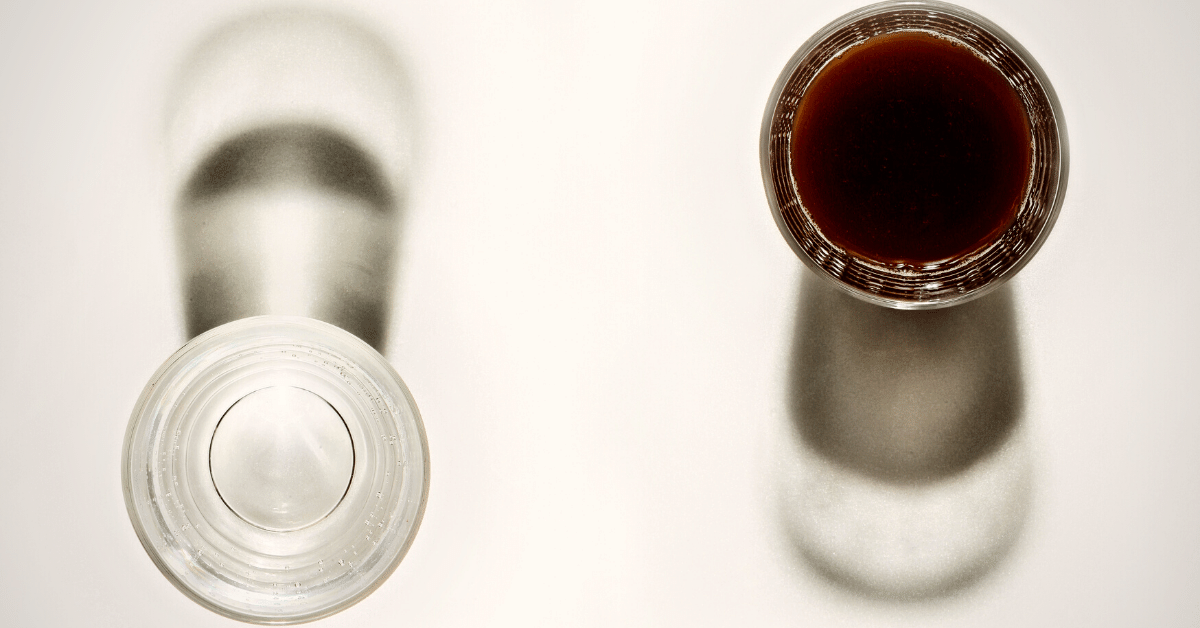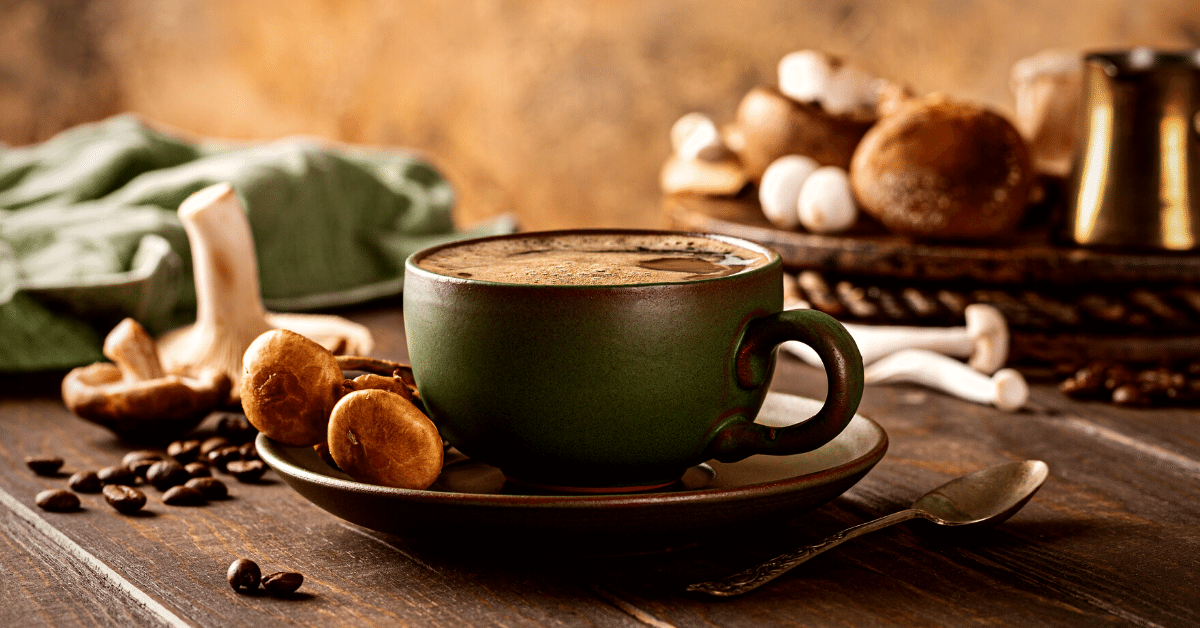In a rush? My choice is Lifeboost Midnight Roast Coffee.
What’s the best dark roast coffee, and how do you pick one?
That’s what I’m here to help you with.
As a barista and coffee enthusiast, I tried my fair share of dark roasts.
In this article, I’ll go over my top dark roast coffees and explain why they make my list.
Then I’ll give you a quick buying guide to help you make your own decision.
Let’s get to it!
Best Dark Roast Coffee: Top 11 Picks
- Lifeboost Midnight Roast Coffee (Best Overall)
- Volcanica Guatemala Antigua Reserve Dark Roast (Best Single-Origin)
- Lavazza Top Class Whole Bean Coffee (Best for Espresso)
- Volcanica Dark Roast Coffee (Best Dark Roast Blend)
- Lion Coffee French Roast (Best for Budgets)
- Grande Domaine Vienna Roast 100% Kona Coffee (Best for a Special Occasion)
- Volcanica Sumatra Mandheling Reserve Decaf (Best Decaf Dark Roast)
- Lifeboost Embolden Dark Roast Coffee (Best French Roast)
- Death Wish Coffee Dark Roast Grounds (Strongest Dark Roast Coffee)
- Stumptown Coffee Roasters French Roast (Most Interesting Flavors)
- Kicking Horse Coffee 454 Horse Power Dark Roast (Best for Daily Brewing)
Lifeboost Midnight Roast Coffee
Lifeboost is an up-and-coming roaster making incredibly solid coffee.
This is one of their darkest roasts that has become a staple in their lineup. And for a good reason.
Midnight Roast is actually darker than their espresso roast, so you know it’s really dark.
For that reason, I would tread lightly if you aren’t sure you love dark roast.
But if you love dark roast and usually add cream and sugar to your brews, this is a wonderful option.
It’s a single-origin 100% Arabica coffee, so it has a smooth flavor and full body. But you do lose some of the classic South American flavors because of how dark the roast is.
It has, however, a naturally low acidity, meaning it’s easy on your stomach if you sometimes have problems with coffee.
Plus, it’s USDA Certified organic, so the growing and processing of this coffee were held to a high standard.
One downside is that it’s on the expensive side, so it’s not really for daily brewing if you’re on a budget.
Pros
- This blend is a low-acid coffee, so it’s smooth on your palate
- It’s a super dark roast, darker than Lifeboost’s espresso roast, so it’s for the deep-flavored dark roast lover
- It’s 100% Arabica, which means it has a smooth flavor and a rich, full body
- It’s USDA Organic certified, meaning it was processed and grown at a high standard
Cons
- It’s a bit expensive for those on a budget
Volcanica Guatemala Antigua Reserve Dark Roast
When I think of dark roast coffee, I often think of heavy and thick-feeling coffees.
This Volcanica Guatemala Antigua Reserve bucks that trend. It’s an incredibly smooth coffee with notes of deep caramel, smoke, and earthiness.
Those flavors work really well together and create a deep and rich flavor. It actually pairs really nicely with cream and sugar. But it can also be enjoyed on its own.
Another benefit is that it’s still a single-origin coffee. So you get all the benefits of the unique Guatemalan profile in a dark roast bean.
Plus, it’s a washed-process coffee. Washed coffees are beans that are separated from the cherries before being processed. That means the flavor profile will be crisper and clearer.
The only downside is that it’s not the most unique coffee out there. It’s a really solid middle-ground cup. Not too dark, not too light.
It’s perfect for a dark roast daily drinker.
Pros
- It’s a single-origin, so you get all the benefits of the classic Guatemalan taste while still having the body of a dark roast
- It’s Kosher and Rainforest Alliance Certified, so you can be sure the growing and processing were clean and high-quality
- It’s a washed process coffee, which means you get a clear and crisp flavor profile
- It has a smooth and rich flavor, which is perfect for a dark roast when paired with cream and sugar
Cons
- It’s not the most unique coffee out there, so it does have some typical flavors
Lavazza Top Class Whole Bean Coffee
Calling your own coffee “Top Class” might be a little cheeky. But only if you don’t back it up with a legitimately good coffee.
This Lavazza coffee is the real deal, especially if you enjoy an espresso now and then.
The espresso roast is dark but not too dark. It has a perfectly smooth texture for espresso or regular drip brewing.
The smoothness comes from a blend of Brazilian and Indian Arabica beans and Robusta beans from Java. So it’s strong and rich.
It’s an interesting blend of coffee, and it produces an interesting flavor. Think super dark chocolate and pine nuts.
That said, it isn’t a rounded cup.
But because of how dark it is, it’s perfect for adding cream and sugar.
I’d recommend this coffee to someone who likes diner-style coffee. The kind you can pour over and over again.
Two things to note: it’s high in caffeine, and has a relatively flat flavor profile. That’s both because of the Robusta beans.
Pros
- It’s an espresso coffee bean roast, so it’s dark but not too dark, perfect for a smooth coffee lover
- It’s a blend of Brazilian and Indian Arabica and Java Robusta beans, which make it strong and rich
- Notes of dark chocolate and dried fruit make it a great choice for adding cream and sugar or brewing straight espresso
- Recommended for someone who likes diner-style coffees
Cons
- The Arabica/Robusta blend makes it a pretty flat flavor profile
- Be aware that it’s pretty high in caffeine
Volcanica Dark Roast Coffee
This is the coffee for classic dark roast bean coffee lovers. And by classic, I mean like my grandmother’s coffee.
Deep, rich, full-bodied, and drinkable. That’s how I would describe this coffee.
It’s a coffee bean blend from Colombia, Guatemala, and Sumatra. That combination is what gives it its richness and fullness.
It has notes of smoke, dark chocolate, and caramel that make it a wonderful coffee either with or without cream and sugar.
It’s perfect for a drip coffee maker, pour-over, espresso, or even cold brew.
And it’s Kosher Certified, so it wasn’t processed or packaged with chemicals of any kind.
Speaking of processing, it’s a washed process coffee. That means the beans were separated from the cherries. So the flavor profile will be crisp and sharp in each cup you brew.
The only thing is that it’s not that unique. Yes, it’s a mega classic dark roast taste, but there isn’t one flavor or aspect that really stands out.
But sometimes you’re just looking for that classic taste, right?
Pros
- It’s a blend of coffee bean varieties from Colombia, Guatemala, and Sumatra, so it has smooth, rich, and full-bodied flavors
- Notes of smoke, dark chocolate, and caramel make it a great choice for drinking black or adding cream and sugar
- It’s Kosher Certified, so it was processed without any chemicals
- It’s a washed processed blend, so it has a crisp and clear flavor profile
Cons
- It’s a standard dark roast blend, so it has a lot of familiar flavors, and it’s not so unique
Lion Coffee French Roast
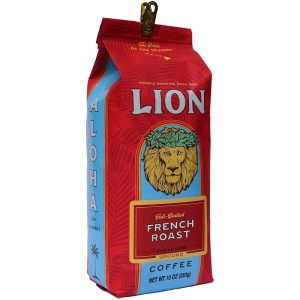
Let’s talk intensity. Or, how much this coffee just tastes like coffee.
Think the coffee of a classic diner. Full-bodied, cream and sugar-required type of coffee.
This is a French Roast that’s smooth and balanced despite the intensity. But the intensity also makes it easy to brew and forgivable no matter your brewing method.
That means that even if you mess up your regular recipe, it’ll still taste alright.
Plus, it’s from a respected Hawaiian roaster, so you can be sure that the quality will stay consistent from bag to bag.
Another benefit of the dark roast is that it’s got low acidity. So if you find that some coffee upsets your stomach, this is probably a good bet.
This is Hawaiian coffee, so it’s tasty. But the dark French Roast takes away some of the classic Hawaiian flavors.
And be aware, even though this coffee is from Hawaii, it’s not actually Kona coffee.
Pros
- It’s an intense full-bodied coffee, perfect for diner-style brewing or pairing with cream and sugar
- The French Roast is smooth and balanced, which makes it a consistent and forgiving coffee
- It’s from a respected roaster, so you can be sure you’re getting high-quality coffee with each bag
- It’s got a low acidity, which makes it easy on the stomach and a good choice for a smooth brew
Cons
- The dark roast does take away some of the unique properties of Hawaiian coffee
Grande Domaine Vienna Roast 100% Kona Coffee
Okay, hear me out on this one: you should absolutely try this coffee at least once. Especially if you like a dark roast (which I know you do).
Why am I so emphatic? Because this is a great cup, every time.
It’s a true Kona coffee. Kona coffee is consistently some of the absolute best in the world. It’s always single-origin, so you get the benefit of single-origin flavors and processing.
And because it’s single-origin Kona coffee, you’ll get a great cup every time, no matter what kind of coffee maker you use.
Part of that is the Vienna roast. It’s dark but not dark enough to hide the great flavors and balanced nature of this coffee.
The roast actually smooths things out and creates a wonderfully delicious profile.
The only thing is that you have to pay for the quality. I would recommend saving this coffee for a very special occasion, or a very special someone.
Pros
- Kona coffee is always single-origin, so you get the benefits of single-origin flavors and processing
- Kona coffee is some of the best in the world, so you can be sure you’re getting a high-quality coffee
- The dark roast doesn’t take away from the quality or taste of this coffee, so you can still taste the incredible Kona beans
- The dark roast smooths out the flavors, so you get a perfectly balanced cup of coffee every time
Cons
- It’s expensive, so probably best saved for a special occasion
Volcanica Sumatra Mandheling Reserve Decaf
To explain why this coffee is great, let’s do a quick lesson on decaf:
There are two ways to decaffeinate, with chemicals and without chemicals. Without chemicals is called the Swiss Water Method.
The Swiss Water Method is always better. (No chemical tastes in your coffee that way!)
This Volcanica Sumatra Mandheling Decaf is decaffeinated with the Swiss Water Method.
So, you get notes of sandalwood, nuts, and earth like a classic Sumatran coffee, but without caffeine.
And because of the Swiss Water Method, this coffee is actually Kosher Certified. That’s rare for a decaf coffee because of the chemicals often used in the processing.
The other thing is that this coffee still has a full body because of the dark roast. So it’s nice for adding cream and sugar. But it’s still tasty on its own, too.
The only downside is that Sumatran coffee isn’t especially known for consistency, so you might find some variance from bag to bag.
Pros
- It’s a Swiss Water Decaf, which means no chemicals were used to decaffeinate, so you get a clean and delicious decaf coffee
- Notes of sandalwood, nuts, and earth make it a balanced and somewhat bright dark roast
- It’s Kosher Certified, which is rare for a decaf, so chemicals were used in the processing
- Still has a full and rich body, which is nice for adding cream and sugar or having black
Cons
- Sumatran coffee isn’t known for consistency, so sometimes, you can get a cup that tastes off
Lifeboost Embolden Dark Roast Coffee
Yeah, the Lifeboost coffee brand makes some great coffee. And this Embolden roast is another great addition to their lineup.
It’s a French roast, so not too dark but also definitely not a medium roast.
It’s 100% Arabica coffee, which means it has a rich and smooth flavor without being overly bitter.
Plus, it’s always roasted when you order, so you can be sure you’re getting as freshly roasted coffee as possible.
Lifeboost makes sure to certify its coffee as both USDA Organic and Fair Trade. So you can be sure the growing, processing, and packaging of this coffee is held to a high standard.
The French roast has naturally low acidity. So this coffee is easy on the palate with or without cream.
However, I must say it’s not affordable as a daily coffee for many of us. It’s best saved for special occasions.
Pros
- It’s 100% Arabica coffee, so you’ll get a smooth, rich, and not-too-bitter cup
- It’s roasted to order instead of by the batch, so you’ll get a fresh roast with each bag you buy
- It’s Fair Trade and USDA Organic Certified, so you can be sure it was grown and processed at a high quality
- The French roast has low acidity, so it’s easy on the palate with or without cream
Cons
- It’s a bit expensive to be a coffee you will drink daily
Death Wish Coffee Dark Roast Grounds
Now, if you haven’t heard of Death Wish Coffee Company before, don’t be scared off by the name.
You can’t actually die from drinking this coffee.
The name is a reference to how strong this coffee is. They use a blend of Arabica and Robusta beans, which creates a super rich and bold flavor.
But it also means that their coffee has a much higher caffeine content than an all-Arabica coffee.
It’s roasted in small batches, which keeps the acidity low and the bags fresh.
Plus, it’s USDA Organic and Fair Trade Certified, so it comes from a good place and is held to a high standard.
In this coffee, you’ll find notes of cherry and dark chocolate that make this a delicious brew no matter what you add or how you make it.
The downside is that an Arabica/Robusta blend means you’ll get a less interesting cup in favor of more caffeine and a bolder experience.
Also, as it’s ground coffee, it loses some of its freshness, and you don’t have a chance to grind the beans to your liking.
Pros
- It’s a blend of Arabica and Robusta beans, which means it has a high caffeine content
- It’s roasted in small batches, which keeps the acidity lower than a lot of other blended coffees
- It’s USDA and Fair Trade Certified, so the processing, farming, and packaging are all done at a high quality
- Notes of cherry and dark chocolate make this a smooth and delicious brew with or without cream and sugar
Cons
- The Arabica/Robusta blend does sacrifice some unique flavors and profiles in favor of a stronger brew
- Ground coffee means you cannot tweak the grind for your preferred brewing method
Stumptown Coffee Roasters French Roast
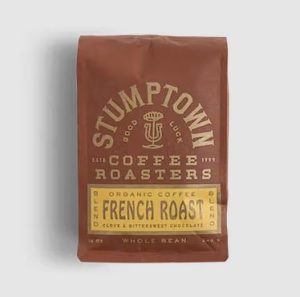
Stumptown has been around for a long time at this point. And they have the staying power for a really good reason: they make really good coffee.
This French Roast is a staple in their lineup. It’s consistent and high-quality from bag to bag, so you never have to worry about getting a bad batch.
The French Roast keeps this coffee smooth and easy to drink. It goes well with cream and sugar if you like cream and sugar in your coffee.
Notes of jam and toffee stand out in this brew, which is unique in the dark roast world. I’m a big fan of the rich and unique flavors. I actually prefer drinking this coffee black.
Also, it’s USDA Organic certified, so it’s held to a high standard.
The only downside is that this coffee is roasted in big batches, so you don’t always get the freshest roast possible.
Pros
- It’s from a well-respected regional roaster, so you can be sure that it will be consistent and high-quality from bag to bag
- The French Roast keeps this coffee smooth and easy to drink, so it goes well with cream and sugar
- Notes of jam and toffee make this a unique dark roast, with juicier flavors than most other coffees
- USDA Organic Certified, so you can be sure that the processing and growing were held to a high standard
Cons
- It’s roasted in big batches, which can mean that you don’t always get the freshest roast when buying this coffee
Kicking Horse Coffee 454 Horse Power Dark Roast
Kicking Horse is another regional roaster with a big reach and deliciously dark roast coffee.
454 Horse Power is a quality coffee that’s consistent from bag to bag.
Kicking Horse uses an Indonesian coffee for this roast, so you’ll get notes of nuts and earth. Perfect for roasting dark and smooth.
They make sure to get certified Fair Trade, USDA Organic, and Kosher. That all means this coffee is held to a high standard and is a good bet for being kind to the environment and your health.
This roast level brings out flavors of tobacco and licorice and gives this coffee a heavy body. It tastes best with a touch of cream.
The only thing to note is that Indonesian coffees aren’t known for consistency, so batch-to-batch might have some variance.
But the roast will always be consistent, no matter the beans themselves.
Pros
- It’s from a respected regional roaster, so you know it will be quality from bag to bag
- It’s an Indonesian coffee, which is known for its earthy and nutty flavors, perfect for roasting dark and smooth
- Fair Trade, Organic, and Kosher Certified, so you can be sure the coffee was held to a high standard from growing to packaging
- It has a heavy body, tobacco notes, and a licorice finish, which is great for adding cream and sugar
Cons
- Indonesian coffees aren’t necessarily known for consistency, so batch-to-batch might have some variation
Choosing The Best Dark Roast Coffee: A Short Buying Guide
With so many dark roast coffees on the market, narrowing down your choices is difficult.
In this section, let’s walk through how I go about making decisions when it comes to buying a dark coffee roast.
There are really three things I look for: flavor profile, origin, and freshness.
Let’s dive into each one of those things in more detail so you can choose the best coffee beans.
What flavor profile tastes best?
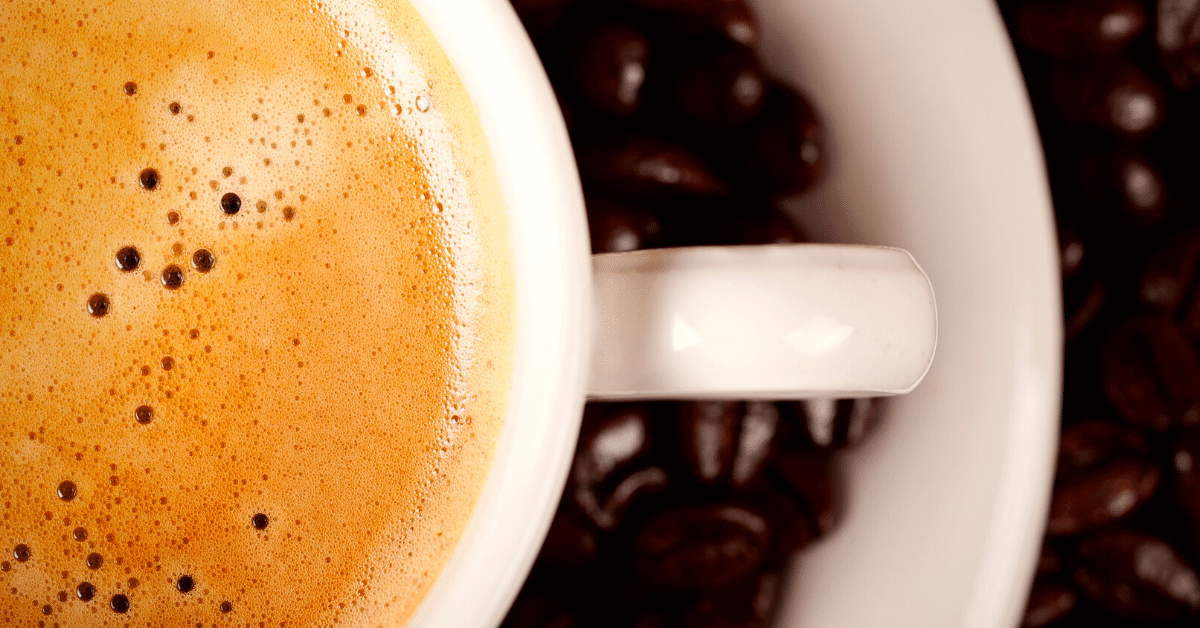
I’ve said this many times, and I’ll say it again here: flavor profiles are personal taste, so there is no best coffee flavor profile. And that stands for all kinds of beans, from dark roast to light roast coffee.
The best way to discover your preferred flavor profile is to simply try a bunch of different coffees. Then start to pull out the ones you like the most and look for similarities.
Do you like a heavier body or a mellow one? Do you like a smooth and rich cup or a bright and acidic one?
An easy way to get into flavor profiles is to look at the tasting notes on the bag and try to taste those in your morning brew.
Notes of dried fruit? Can you taste that?
How about sandalwood? Do you taste that?
Sometimes flavors come along that really blow us away.
I, for example, love coffees that taste like blueberries. I seek out those coffees and have a pretty good idea of when coffee might line up with my tastes.
My best advice is to look for different coffees at similar roast levels to get a sense of what flavors you like at that roast.
Then you can start to pick out your favorites and get a sense of which coffees will most likely line up with your desired profile.
BOTTOM LINE
Try a lot of coffee! But when looking for your favorite profile, just make sure you try coffees at similar roast levels. Coffee is all about personal taste, in the end.
What country of origin should you look for in a dark roast?
Country of origin plays a big part in determining the flavor profile of your coffee.
Aside from the roast, it’s actually the biggest factor.
Each country and region has its own unique flavors and characteristics. For example, Asian Pacific coffees are known for being full-bodied and having low acidity.
African coffees, on the other hand, have bright acidities and complex, fruity flavors.
Coffees from Latin America are generally smooth, citrusy, and chocolatey.
That’s a really basic understanding of regional flavors. But it’s a good starting point for understanding how different areas of the world have different characteristics.
My recommendation?
Try a few different dark roasts from different regions. One from South or Central America, one from the Asian Pacific, and one from Africa is a good place to start.
The other thing to consider is single-origin versus blends.
Blends are a great way to go if you’re looking for a classic taste. They are generally pretty mellow in acidity and have a smooth profile.
Single-origin coffees usually have more complex and interesting flavor profiles. That also usually means they are more expensive.
But if you’re looking for a richer and deeper flavor, single-origin coffees are the way to go.
IN A NUTSHELL
Again, it’s all up to personal taste. But try finding coffees from different regions and seeing which ones really stand out to you. That’s a good place to start to get an idea of which origins you really enjoy.
How fresh should my coffee be?
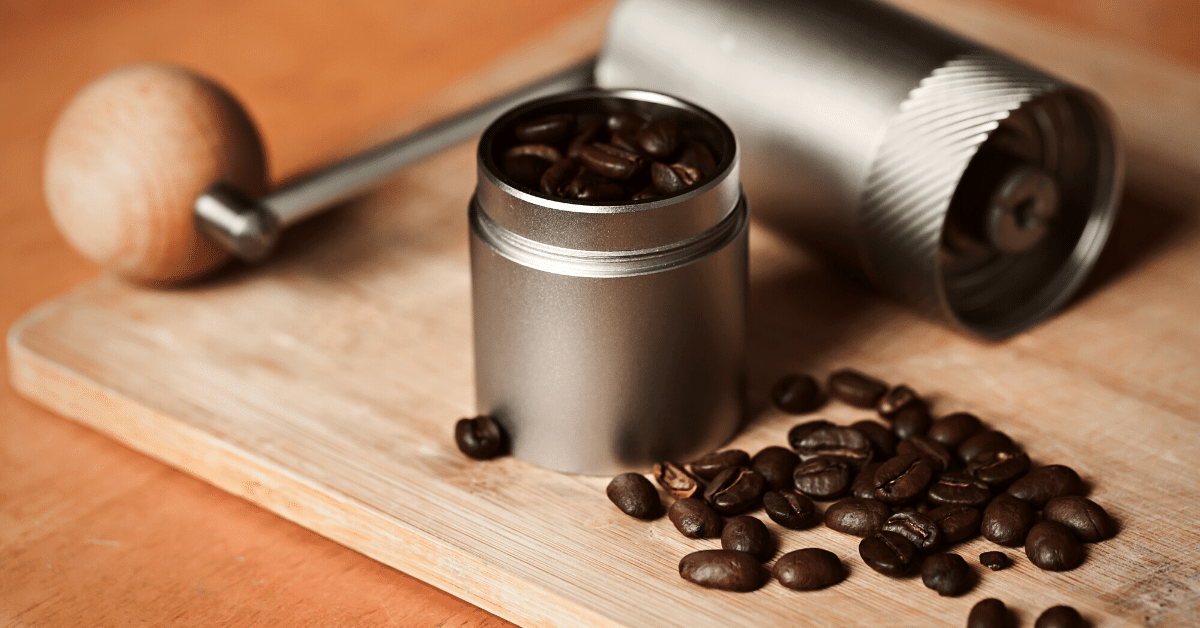
This is unequivocal: the fresher, the better.
That said, there’s a period of about three weeks where your coffee will taste the best before it starts to lose its flavor and quality.
That said, if your bag is nitrogen flushed, then it all depends on when you actually pop the bag open.
Most roasters will put the roast date on the bags and a use-by date. Note that the use-by date is a suggestion, and brewing the coffee after that date will not make you sick. It just won’t taste as good as it did when fresh.
Another thing is that roasters sometimes roast to order. This is a great way to ensure that you’re getting the freshest roast possible.
When buying from a grocery store, look for a roasted date. Anything within a couple of weeks is a good bet.
When buying from a local shop, you can be almost guaranteed that you’re getting a fresh enough roast to last a month of brewing daily.
And don’t forget to store your beans in an airtight container so you can keep them as fresh as possible.
BOTTOM LINE
Fresher is better, but you don’t need to buy coffee roasted yesterday. Anything within a week or two of when you buy is still a good bet to taste great for a month after you open the bag.
My Final Thoughts
After all that, I’m still going with the Lifeboost Midnight Roast Coffee as the best dark roast coffee beans.
It’s as classic as classic gets. With a perfectly balanced cup of coffee, you still get all the benefits of it being a single-origin.
Plus, it’s a washed coffee, so the flavor profile will be crisp and clear in every brew.
The bottom line with this coffee is that it’s classic and deserves a place on your breakfast table.


